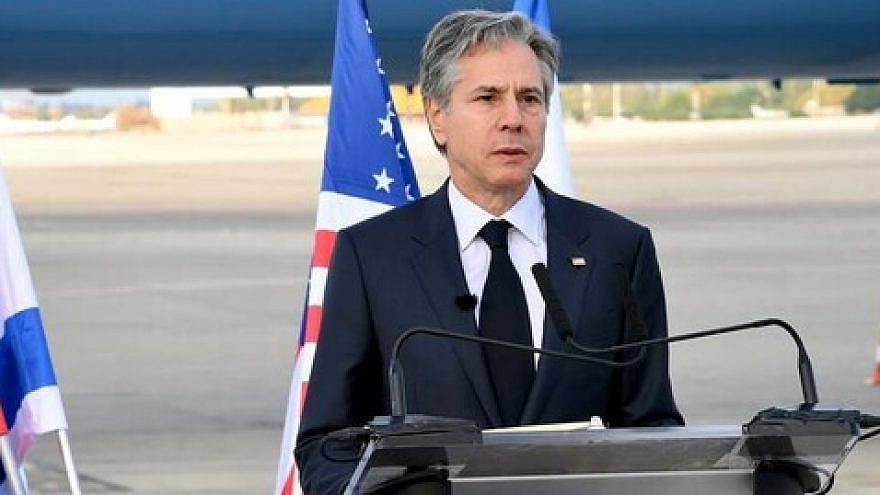Both U.S. President Joe Biden and Secretary of State Antony Blinken released statements this week marking days of remembrance of Holocaust victims.
“During Yom Hashoah and throughout these days of remembrance, we mourn the 6 million Jews who were murdered during the horror of the Holocaust—as well as the millions of Roma and Sinti, Slavs, disabled persons, LGBTQI+ individuals, and political dissidents who were murdered at the hands of the Nazis and their collaborators,” Biden stated in an April 14 proclamation.
Biden said he will never forget meeting two survivors last year on the “sacred ground” of Yad Vashem, the World Holocaust Memorial Center in Jerusalem.
“The horrors of the Holocaust are painful to recount—the savage murder of innocent families and the systemic dehumanization of entire populations,” he stated. “We remember the cries for help that went unanswered and the bright futures cut short. We must never look away from the truth of what happened.”
Biden touted his administration’s naming of longtime Emory University professor and historian Deborah Lipstadt as the first ambassador-level special envoy to monitor and combat antisemitism (a designation that went into effect before his presidency) and said it is developing a national strategy to counter antisemitism, “mobilizing the full weight of the Federal Government to fight this scourge of hate in America.”
He added that the United States is co-sponsoring a U.N. resolution to combat Holocaust denial and secured “the largest increase in funding ever for the physical security of nonprofits, including synagogues, Jewish Community Centers, Jewish day schools and other houses of worship.”
The president proclaimed April 16 to April 23 “a week of observance of the Days of Remembrance of Victims of the Holocaust” and called upon Americans to “pause to remember victims and survivors of the Holocaust.”
On April 17, Blinken, who is Jewish, released a statement commemorating the Days of Holocaust Remembrance.
“On Yom HaShoah, we remember and honor the 6 million Jews and the millions of others the Nazis murdered, including Roma, LGBTQI+ persons, Slavs and persons with disabilities,” he stated. “We honor them not only as they died, but as they lived, fought and loved. We mark their lives in their richness and complexity as we mourn the traditions, knowledge, histories and families lost.”
“Among the most powerful lessons we can learn from the Holocaust is that the mass murder of 6 million Jews was not a sudden or singular act, but rather the culmination of countless incremental steps designed to vilify and dehumanize people,” he added. “That’s why we must remember, now and always.”


























